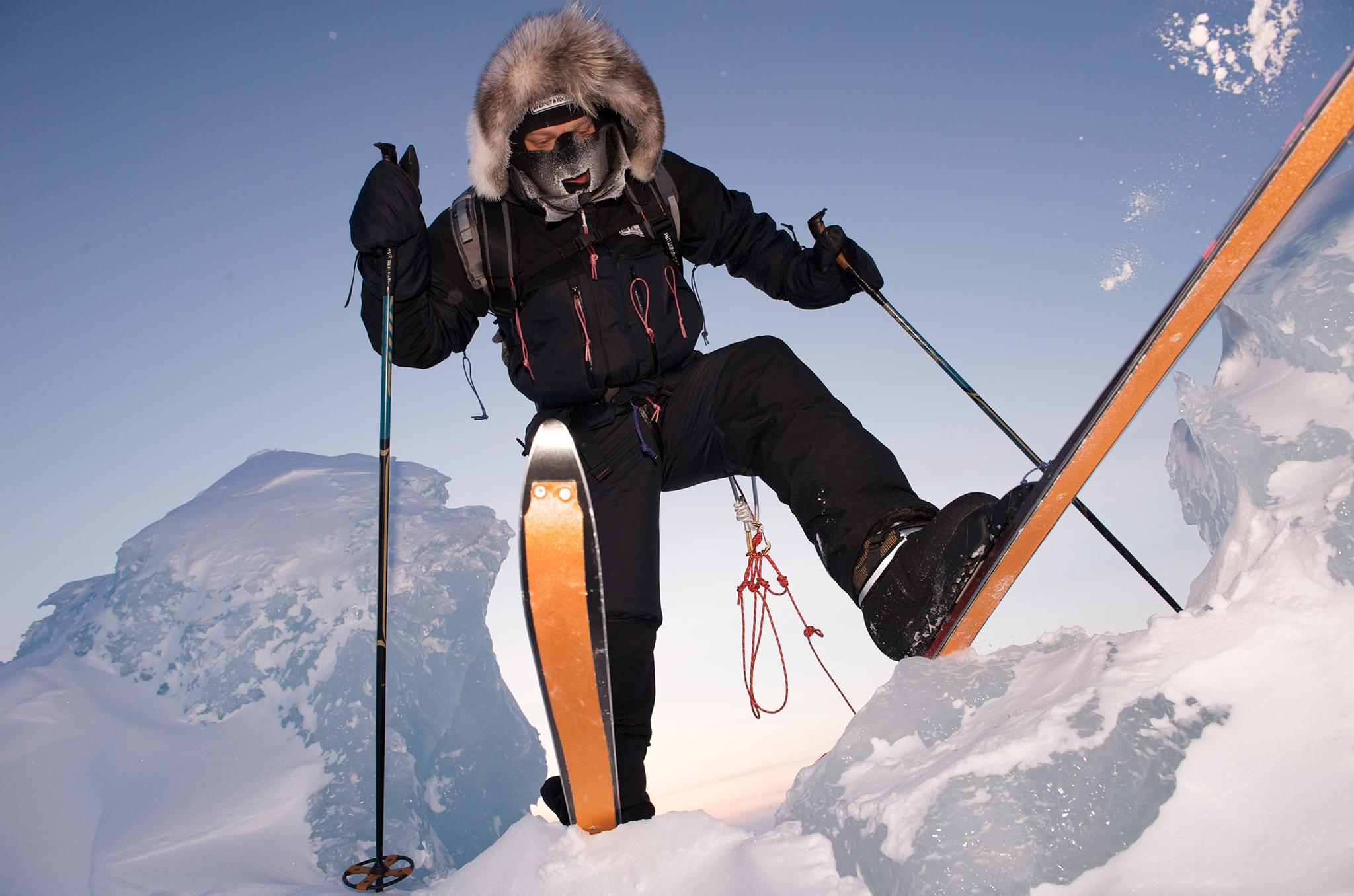What an explorer learned about life after spending 72 days alone in the North Pole
Ben Saunders talked to The Independent about the life lessons we can all learn from his 11 expeditions

In 2014, Ben Saunders accomplished the 108-round trip to the South Pole which famously killed Captain Robert Falcon Scott in 1912.
The route, which he undertook with Tarka L’Herpiniere, saw the pair endure physical and mental hardships, have to adjust to an unusual and hostile climate and adopt a new approach to time given that they only saw daylight for 24 hours a day for more than 100 days.
The “disciplined and regimented” daily schedule of an explorer is “absolutely governed by time”, Saunders told The Independent. You kick-start with lighting the stove and having a hot drink and breakfast, before taking down a tent for two hours, starting the expedition, having a break and a hot drink or food again, walking or skiing some more before erecting the tent once more. The day finishes with digging up a big bag of snow to heat, melt and drink before starting the day all over again.
“It is almost the same routine every day really. It is this unusual existence… we didn’t see anyone else, it was just two of us in a tent eating almost the same thing every day with almost the same routine and scenery every day.”
Despite the monotonous and yet physically exhausting and demanding way of life, Saunders says there is “something addictive about expeditions” and he has undertaken 11 throughout his career.
He got into the career path from “what should have been a gap year” after getting inspired by his mentor John Ridgway MBE who along with Chay Blyth were the first people to row across the North Atlantic in 92 days in 196. Saunders started hatching plans for his first expedition at age 18 but never quite dreamed it would become the extraordinary career path that it has.
He signed up to the army and got admitted to Sandhurst training academy as an Officer, however after a car crash and the realisation he “valued [his] freedom quite highly and didn’t respond well to orders” he left after 11 months.
He was 23 when he underwent his first expedition across the North Pole from Russia which he describes as “very humbling” due to the shock of the severe climate and how physically and mentally tough the journey they were trying to make was.
Saunders and his buddy Pen Hadow did not reach the North Pole and once he returned back to the UK he immediately started making plans for more expeditions.
“Once I got over the acute disappointment and shock… Immediately I wanted to go back and try and finish it to prove that I could handle that sort of challenge.”
For Saunders, the ultimate challenge was a lone expedition. He achieved this in 2004 when he successfully skied to the North Pole alone.
For 72 days, he did not see another person, which while for many this would appear both frightening and lonely, he says the isolation was not as challenging as he expected.
“There was an element of freedom to it which I hadn’t anticipated. The hardest part, in hindsight, is the knowledge that no one else will ever know what it is like,” he says solemnly.
He is particularly reflective about this aspect due to the fact he skied on sea ice which moves meaning literally no one will ever see the icescapes he personally witnessed again
“In some ways it is incredibly magical but in other ways it is incredibly frustrating knowing no one else will ever see that and words always seem to fall short when you try and explain what it was like.”
He is, unsurprisingly, happy with his own company and describes himself as more of an introvert despite his frequent packed-room public speaking appointments.
Starting an expedition is one of the hardest parts of the whole trip, Saunders says. Those first few hours when the enormity of the challenge you are about to undertake hits home can be particularly difficult.
“I remember being dropped off by helicopter in the middle of nowhere, I’m 26 years old, about to be on my own for 10 weeks and I was just suddenly petrified,” he recollects.
During the Scott expedition, Saunders and L’Herpiniere had to get a re-supply half way through trip because they had misjudged the food supply as they delved into uncharted territory and began suffering from hypothermia.
“At the time that felt like defeat, my dream had been to make the journey with no external support… and there we were having to call for help. That was the toughest point of our trip.
“Looking back though it is one of the proudest moments because it was a really tough decision and I think if we had not done that we might not have made it home. We were in a pretty bad state, facing a lot of risk and uncertainty.”
So for those of us who do not cross uncharteed lands in hostile climates for an adventure what can we learn from his expeditions?
“I’ve surprised myself in what I’ve been able to achieve. I went from having a dream as a teenager that maybe once I could join an expedition and I’ve done 11 now and I’ve gone on to rewrite the rulebook… we finished the journey that defeated [Sir Ernest] Shackleton, killed Ernest Scott and remained unfinished for a century and we were the first ones to do that.
“I’ve been really stubborn, persistent and just kept bashing away. For me the biggest lesson has been with enough determination, resistance and grit not much is genuinely impossible.”
Ben is a contributing partner to www.unlimited.world.
Join our commenting forum
Join thought-provoking conversations, follow other Independent readers and see their replies
Comments
Bookmark popover
Removed from bookmarks